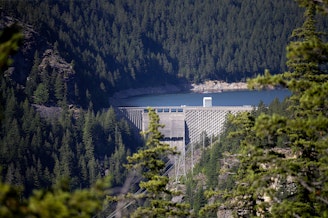"Code red for humanity" (and the Northwest is no exception)

Shadoria Wraggs holds her two-month-old son Gregory as her daughters Alycia, 8, left, and Av-ai, 5, look at flash cards inside their temporary room at the King County Cooling Center in White Center, Monday, June 28, 2021. The family, including father Gregory Wraggs Sr. and another daughter, had been living in their van for the past year and were able to stay in an air-conditioned unit at the cooling center as temperatures rose into the 100s.
Genna Martin for KUOW
U.N. Secretary General António Guterres says the latest report from the U.N. Intergovernmental Panel on Climate Change is a "code red for humanity" as the planet hurtles ever closer to climate catastrophe.
But the scientists behind the sixth in a series of comprehensive studies of the world's rapidly changing climate say it's still not too late for the people of planet Earth to fend off the most disastrous impacts of a warming world.
A month after an extreme heat wave killed at least 129 people in Washington and with a second heat wave forecast to hit the state later this week, KUOW environment reporter John Ryan spoke with newscaster Paige Browning about the new report and its implications close to home.





